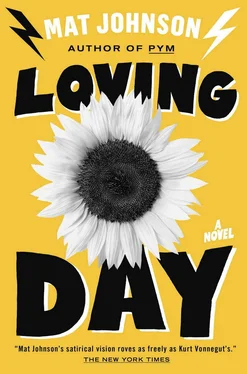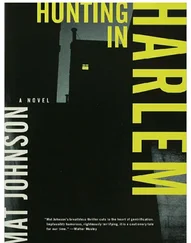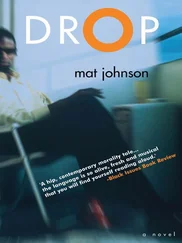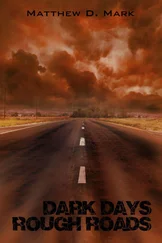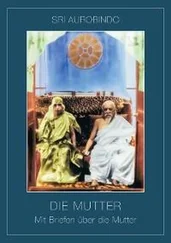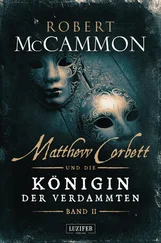“It’s called home . Oh yeah, you betcha,” an ebony-skinned woman says next to me in a thick white-girl accent that sounds like it was obtained in North Dakota.
There are mulattoes in America who look white and also socialize as white. White-looking mulattoes whose friends are mostly white, who consume the same music and television and books and films as most whites, whose political views are less than a shade apart from the whites as well. They ain’t here. Those mulattoes whose white appearance matches up with the white world they inhabit, those mulattoes aren’t coming to Mulattopia. The world already fits well enough for them.
Those mulattoes who look definitively African American and are fully at home within the African American community — they aren’t here either. Those mulattoes who look clearly black and hang black and are in the full embrace of black culture — nope, they’re not here, nowhere to be found. If they were they would denounce this lot of sellouts. I know they would. I can hear them from the place they have in my consciousness.
The people whose appearance matches the identity they project, they have a place in society that they fit into with minimal cramping. But here, standing next to us, is everyone else. The human equivalent of mismatched socks. The people whose racial appearance fails to mirror the ethnicity of their inner spirit.
They’re going to let me teach three days a week, push my reduced payments off till Halloween, when I should have access to the rest of my dad’s modest cashable accounts. I’m looking forward to a whole week of training with Tal, us sitting together making fun of the cultists in the back of the classroom, me and my teenage baby girl, bonding. But as soon as the blond Neanderthal comes to open the gate, Sunita appears right behind him, reading names off a list. And just like that my daughter and I are separated, broken off into two groups, and sent to sit in trailer homes at opposite ends of the encampment.
There are a dozen other people sitting around a circular table in the room for Balance Class B, and nobody knows each other yet so nobody is talking or making eye contact. But I am looking at them. And I am looking at some of the whitest-looking black people on the face of the planet. The only reason I know some of them are black is because they’re in this room. I look at these people — a couple adults my age, the rest kids Tal’s age and younger — and I come to the most blissful recognition. I am the darkest Negro in the room.
I am the darkest Negro in the room.
Finally. I — lighter than some white people walking around this world, always the palest of any black person, a man who can barely hold on to that mantle — am like an Asante chief in this room. The aspirational blackness of this group is clear in their aesthetic choices. The teenage boy to my left wears a do-rag, presumably so you do-not see the straight brown strands peeking out from around his ears. He has on the basketball jersey of a player most famous for being associated with the reality-TV star to whom he was briefly married. Next to him is a woman whose African braids must have been attached to her stringy mouse-brown hair with superglue. These people, they are not black like me. They are less black than me, and therefore I don’t trust them. And I love it. Embattled groups have to police membership, for their own self-protection. But with policing comes power, and all power’s usual intoxicants. Instantly, my own ethnic bona fides are shored up by the contrast to my present company. This, I realize, is a singular element of the Black Experience I’ve been previously denied. The guilty satisfaction of sitting in judgment over others for their insufficient blackness. I forgive everyone who has ever done this to me maliciously. How could anyone resist such a pleasurable self-righteous indulgence!
The blond Neanderthal comes into the classroom. I have a moment of panic that I’m going to have to take a week of lectures from Thor the Thunder Mulatto, but he sits down next to me. I can see his dreads close up and marvel at how a man who looks so white can have hair kinky enough to hold them. And then I almost chuckle when I can see that his thick strands are held together by some sort of product. Egg whites or wax, or more likely some organic paste that comes in a jar with a lot of little Africas or ankhs or marijuana leaves decorating its sides.
“One drop,” he says when he catches me looking. I smile and look at him. And then he says it again, “One drop.” And I know he’s calling me out. Amazingly, all of my air vacates and is replaced with something the opposite of helium. Just like that. The familiarity of this next emotion’s so complete that it takes only a moment to accomplish. Here I have sat in judgment, yet am no better. One drop of African blood, the legal definition of blackness in America. And really, look at me, am I much better? Does the wideness of my nose or my full lips somehow obscure the fact that I hold to this ridiculous fallacy as well? I am more ashamed for having forgotten this at the first opportunity. And when he says, “ ‘One Drop,’ like the Marley song. What do you go by?” holding his hand out for me to shake it, and I get that he’s giving me his name. That he’s actually telling me that he’s willfully chosen to call himself this insult.
“Warren,” I say. But can’t resist asking, “You really like to be called One Drop?”
“They used to tease me with the name, when I was a young boy coming up. Now, I own it. And it can’t hurt me since it ain’t true. You feel me, Dubs?” he says, then offers me a fist bump, which is a nice way to accentuate that he understands the unspoken rule that any brother with a W anywhere in their name has the opportunity of choosing “Dubs” as a nickname. He has studied the culture well. I give a pound in appreciation.
“Don’t be nervous, yo. First day jitters, but it ain’t nothing. It goes quickly,” One Drop tells me. He says it like he truly knows, like this isn’t just conspiratorial bluster.
“You took one of these classes before?”
“Man, I’ve taken this jawn three times. My blackness runs too deep, yo,” he says, putting a fist over his heart. “See, they make you take it till they whitewash you, yo. But the teacher, she’s the best.” And when Sunita Habersham walks in and authoritatively takes the front of the table, I turn to agree with him.
—
I stare at Sun, but she’s the teacher, and she’s lecturing, so it’s perfectly appropriate. So she likes comics. So she’s height-weight proportionate, in a manner I find voluptuous. Yes, she’s displayed an unattainability that enhances her attractiveness to me. But still, rational thought here, what am I being attracted to? All those reasons are so petty, my desire doesn’t accrue from their sum. I look at her neck. It’s got all those lines running across. She’s a little younger than me and blessed with more melanin, so those aren’t wrinkles, its the skin of her neck being too long for the bones holding up her solid, monumental head. The size of it eludes perception because of the distracting oversized glasses masking a third of her face.
The enormous concave lenses shrink her eyes down to the size of a small child’s. Her pupils are two little brown dots floating in empty aquariums. If Sunita Habersham wore contact lenses, they be as thick as Russel Wright plates. Sun could swim at the bottom of the ocean with contacts that solid. She is not attractive in pieces, but what human is? She is the most beautiful tall, half-black, female comic-book nerd in the world, of this I have no doubt. The whole is what matters. And she is whole and balanced. She must be or the blasphemy that she’s preaching would shake her to the ground.
Читать дальше
